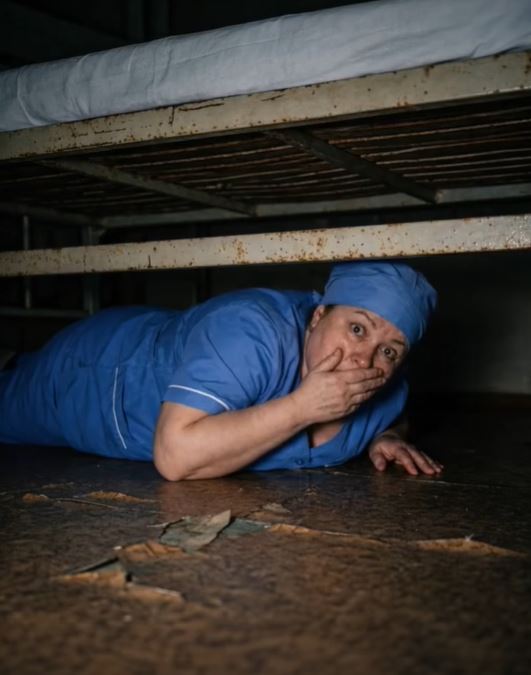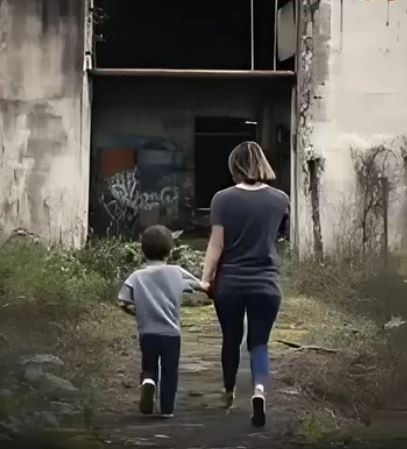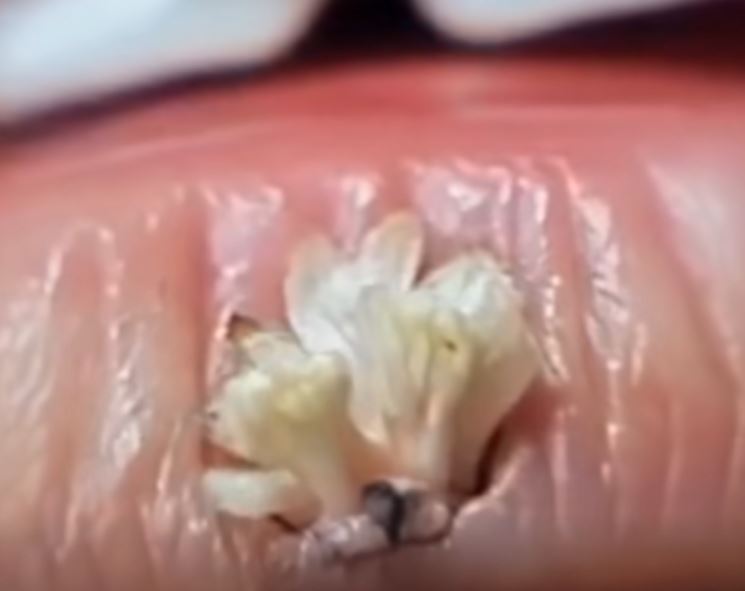My 10-Year-Old Son Defended A Poor Girl From A Bully—The Call I Got Afterward Left Me In Tears
I was thrilled when my 10-year-old son informed me that he had defended a quiet girl who was being harassed by the wealthy student at school. The boy’s strong father then called, leaving me dumbfounded, scared, and utterly unprepared for what was about to happen.
I was in the middle of peeling potatoes when I heard the front door creak open. Then I heard my son’s sneakers dragging on the tiles in the hallway.
My kid didn’t shout his typical “Hey, Mom!” or grab a banana on his way to the refrigerator or toss his backpack on the chair, as he has done every day since second grade.
Jason, on the other hand, went directly to the couch, placed his sketchbook on the cushion, and sat with his knees up and his head down like a child who had seen something terrible and had no idea what to do with it.
There was a problem. Not off in the way of being exhausted from gym class. The sort of thing that makes a parent shudder.
My son is a peaceful, kind child who prefers to sketch comics to roughhouse; I am a single mother. He likes to sit in the cafeteria with the lonely kid. I was so taken aback by his concern that day.
I walked over after using a dish towel to wipe my hands. “You okay, bud?”
With a nod, he conveyed the message, “I don’t want to talk, but please ask again.”
Something’s weighing hard on his chest, the kind that screams.
I took care not to push as I sat on the coffee table’s edge. “Rough day?”
Jason’s fingertips were on his hoodie’s hem. “Yeah.”
“Wanna tell me what happened?”
After a moment of hesitation, he raised his gaze. “It’s Emily. Dylan was picking on her again.”
Something in my chest twisted at the name.
Jason had made several references to a young girl named Emily, who was seven years old. She wore hand-me-downs all the time and was timid. According to Jason, they barely made ends meet as her mom worked at the neighborhood diner.
His comment that stuck with me longer than it should have was, “She eats her lunch so slowly, like she’s trying to make it last till dinner.” When your 10-year-old says something like that, peanut butter seems heavy on your tongue.
Already preparing myself, I inquired, “What did he do this time?”
Jason gave a quick exhale. “It was during recess. Emily was just sitting near the swings, not bothering anyone. Dylan walked up with a bunch of his friends. He looked at her jacket and said…” Jason’s jaw tightened. “He said, ‘Did your mom pull it out of the trash? Or did Goodwill have a buy-one-get-one?'”
I shut my eyes.
Yes, children may be harsh. Dylan was more than simply a cruel child, though. He was a cruel, wealthy child. That combination has a unique effect. Children who aren’t taught to say “no” seem to have a sharper tongue.
Jason wasn’t done yet. “Then he grabbed her lunch bag and held it over her head. Said, ‘PB&J again? Wow, your mom’s killing it.'”
I curled my hands beneath the table and waited. “What did you do?”
Jason lowered his voice. “I told him to give it back.”
My eyes widened. “You stood up to him?”
He nodded slowly. “Yeah. I walked over and stood between them. I told him, ‘Give it back.’ He laughed. Said, ‘What are you gonna do? Draw me a picture, comic boy?'”
Jason made an attempt to smile, but it fell short of his eyes. His tone softened, as if he wasn’t sure if he had made the correct decision.
“And then?”
“I said, ‘At least Emily doesn’t have to buy her friends with sneakers and game consoles.'”
It was a hit.
Jason went on, “Some of the kids laughed. One of them even said, ‘He’s right.’ Dylan’s face turned all red, like a tomato. He shoved the lunch bag back at Emily and stormed off.”
His shoulders tensed as if he were waiting for something to fall, but he continued to look down at his sneakers when I reached for his hand.
“I think he’s gonna get back at me, Mom. Dylan doesn’t lose. And definitely not in front of other kids.”
I saw Jason make his way to the school gate the following morning. His hood was up, his shoulders straightened, and he clutched his sketchbook like a shield in a worried manner.
His steps seemed to drag a little, as if he wasn’t prepared for whatever lay ahead. Nevertheless, he showed up. It doesn’t always seem loud to be brave, does it? Sometimes, when you’d want to run, it just looks like walking in.
I wanted to turn the car around and go into that school myself, but I didn’t want to be a babysitter. Not to engage in combat with him… only to protect him.
He did not, however, request protection. When it counted, he got up. I also had to let him remain upright.
Two days went by without any problems. Then Friday arrived.
Jason had a small bruise beneath his cheekbone and a tear in his sleeve when he got home. I noticed him wince as he took off his backpack, despite his best efforts to minimize it. It was a silent wince, not the kind that says, “I tripped.” Kind children learn to shield others from the true severity of a situation.
“Jason, honey, what happened?”
He gave a shrug. “Dylan shoved me… in the hallway.”
My heart was already pounding when I got up from the sink. “Are you serious?”
“He called me ‘Trailer Trash Avenger.'”
I blinked. I wasn’t really sure how to react to something so nasty and absurd at the same time. “What did you say back?”
“I just told him it’s better than being a spoiled brat.”
My boy is that.
He said, “But it’s not just about me,” as he sat down and picked at the table’s edge. “Everyone’s talking about it. Some kids are on Dylan’s side. Some think I’m crazy for sticking up for Emily. It’s like… I started something.”
He was seated across from me. “What do you mean?”
Jason gently raised his head. “I think it’s bigger now. Like… Dylan doesn’t just want to embarrass me. He wants to win. And I don’t think he even knows why.”
And I understood his meaning. Dylan’s kind of power was rarely contested. When it did, the blow was more powerful than a fist.
That night, the school called. Setting up a meeting was the vice principal’s goal. The typical response, I thought, would be, “We admire your son’s courage, but we can’t allow disruptions.”
Before they could finish the compliment, you could always hear the “but” coming.
Three nights later, I received a call from an unknown number, which caught me off guard.
Jason was asleep in bed, cartoons were still humming in the living room, and I was folding clothes when it happened. I was on the verge of leaving it on voicemail.
“Hello?”
“Is this Jason’s mother?”
It was a hard, cold, deep voice.
“Yes… Who’s calling?”
“This is Mr. Campbell. Dylan’s father.”
My mouth became parched. Is this the same Mr. Campbell who owned the high-end stores? Whose face appeared on half of the city’s billboards during the campaign?
“I need to speak with you about what your son did. He made my boy a laughingstock in front of everyone. You MUST come to my office tomorrow and take responsibility. If not, there’ll be consequences.”
My hands became numb. “I… I don’t understand. Jason stood up for a girl who was being bullied.”
He interrupted me. “Meet me at my office. Tomorrow. 9:00 a.m. Sharp.”
Then he hung up. like that.
And my heart was thumping like someone had sucked the breath out of my chest as I stood there with a half-folded T-shirt.
Have you ever experienced that twisted, nauseating fear while waiting for a root canal in a dentist’s office? Take that and double it by 10. I had that feeling when I walked inside Campbell’s office.
It was not a workplace. The monument had polished marble floors, tall glass walls, and artwork that appeared too costly to handle. The plants appeared to have trust funds as well. I received an unsubtle once-over from the receptionist. I could feel the criticism creeping up my blazer from the charity store.
She took me to a corner office that most likely had a zip code of its own.
Behind a desk larger than my kitchen table was Mr. Campbell. Everything was in its proper position. No pictures. No mess. Only electricity, steel, and glass.
“Sit,” he said.
Yes, I did.
Before he spoke, he looked at me for a moment. “Your son humiliated mine. Dylan came home crying.”
His tone suggested that he wasn’t accustomed to speaking those phrases aloud. As if “Crying” had no place in his world. Not at his residence.
I was about to defend Jason when his expression changed. The sharp edge grew softer.
“He told me everything,” stated Mr. Campbell. “Every word.” With his hands clasped and his gaze fixed on mine, he leaned back.
“My son thought I’d punish Jason. Thought I’d storm into the school and throw my weight around. But instead… I realized something.”
He scratched his temples and his voice cracked a little. “I’ve been raising a bully.”
That was unexpected.
“I gave Dylan everything — money, gadgets, and expensive vacations. But I didn’t give him empathy. Or humility. Or any understanding of people who live differently than he does.”
Silence fell for a beat. Not uncomfortable. but hefty.
He breathed out slowly. “I’ve spent years building a life that looks perfect on paper. But yesterday, I realized how badly I’ve failed at the one job that matters.”
After pausing, he uttered something that would always stick in my memory. “Your son gave him something I never could: a mirror.”
He took a check out of a drawer and slid it across the desk as if it were heavier than paper. “For Jason. His education. Or whatever he dreams of doing.”
I gazed at it. It appeared like the zeros were a phone number.
“I can’t accept this. Jason didn’t do this for money.”
“I know,” answered Mr. Campbell. “That’s exactly why he deserves it.”
Quieter this time, he leaned back. “I just… wanted you to know he made an impact. On my son. On me.”
Jason sat cross-legged on the floor that night and drew his superhero with bruised knuckles and a ripped cape.
“Hey, kiddo,” I whispered quietly as I sat next to him. “Mr. Campbell called me.”
Jason’s eyes became wide as he looked up. “Did he yell at you? Am I in trouble?”
I grinned. “No. He thanked me. Thanked YOU.”
Bewildered, my son blinked. “Why would he do that?”
“Because you made his son look at himself. And he realized… he’s been doing things wrong.”
Jason gave his head a scratch. “Does that mean Dylan’s gonna stop being a jerk?”
“Maybe not today. But I think something changed.”
Slowly, as if he was still trying to understand what that meant, he nodded. “People like Dylan… they don’t usually say sorry. I think it probably hurt more than the bruise did.”
And it did.
Jason was delighted when he got home from school a week later. He shouted, “You’re not gonna believe it!” as he collapsed onto the couch.
“Try me.”
“Dylan came up to me at recess. Said, ‘Sorry for… y’know.’ Then he just walked away.”
“That’s it?”
Jason paused and said, “Yeah, but he looked like he meant it.” “He didn’t say it like someone made him. He looked… different.”
I gave him a hug. “That’s a start.”
That wasn’t all, though.
Word spread that Emily had a new backpack and coat. One without half-broken zippers or one that hung loosely from her shoulders. A coworker informed me that Emily’s mother had received an offer from Mr. Campbell to work full-time at one of his dealerships.
Not a press. Not a word. Just deliberate, silent action.
“I didn’t want Dylan to get in trouble. I just didn’t want Emily to feel scared,” Jason muttered as I tucked him in one evening.
I gave him a forehead kiss. “And that’s why, my sweet boy, you’re exactly what this world needs more of.”
His eyelids were heavy with sleep, but he smiled. “Can I draw her in my next comic? As a sidekick?”
I grinned. “Only if she gets top billing.”
Adults with titles or authority don’t always bring forth the most significant improvements. They begin with a 10-year-old holding a sketchbook between a girl eating a peanut butter sandwich and a bully.







